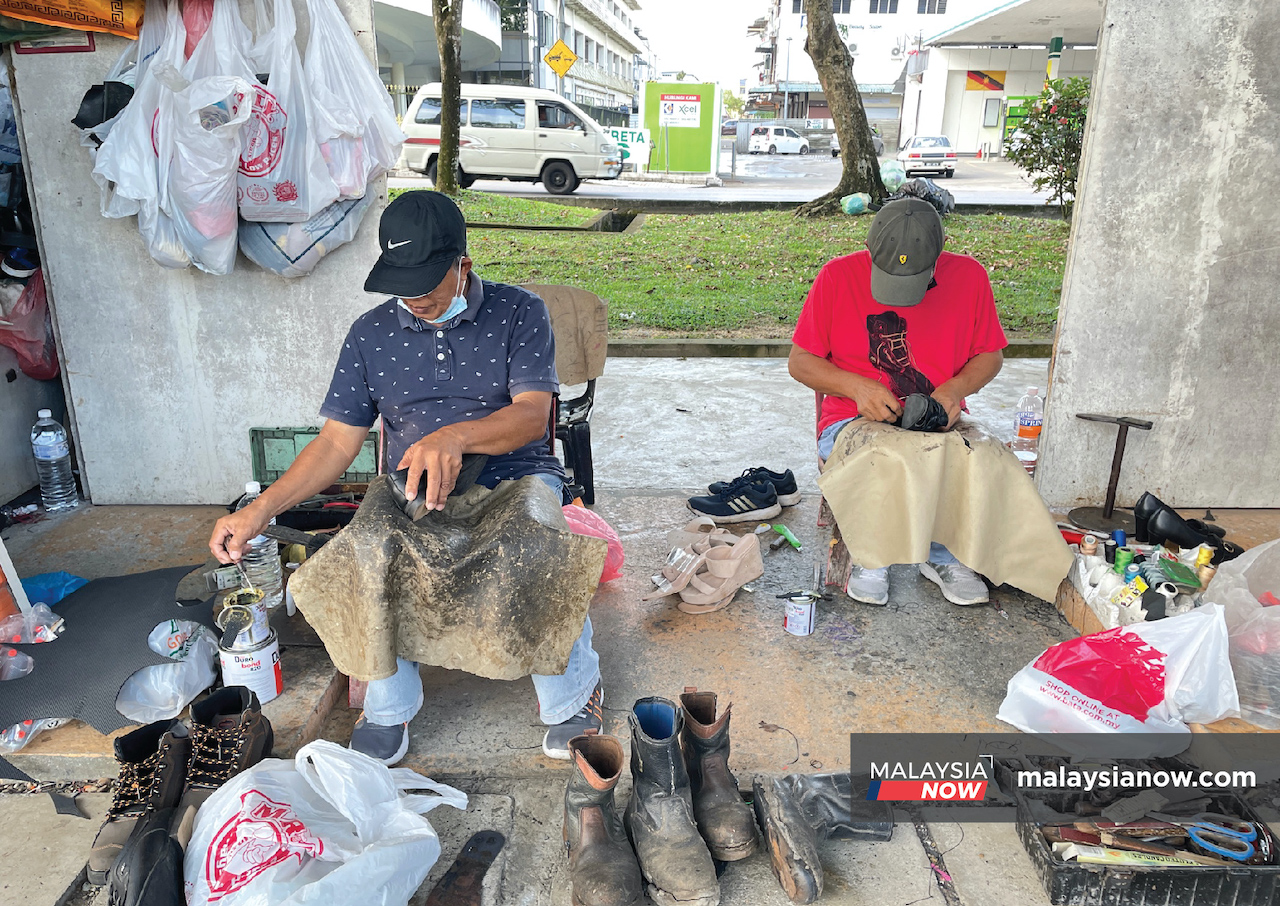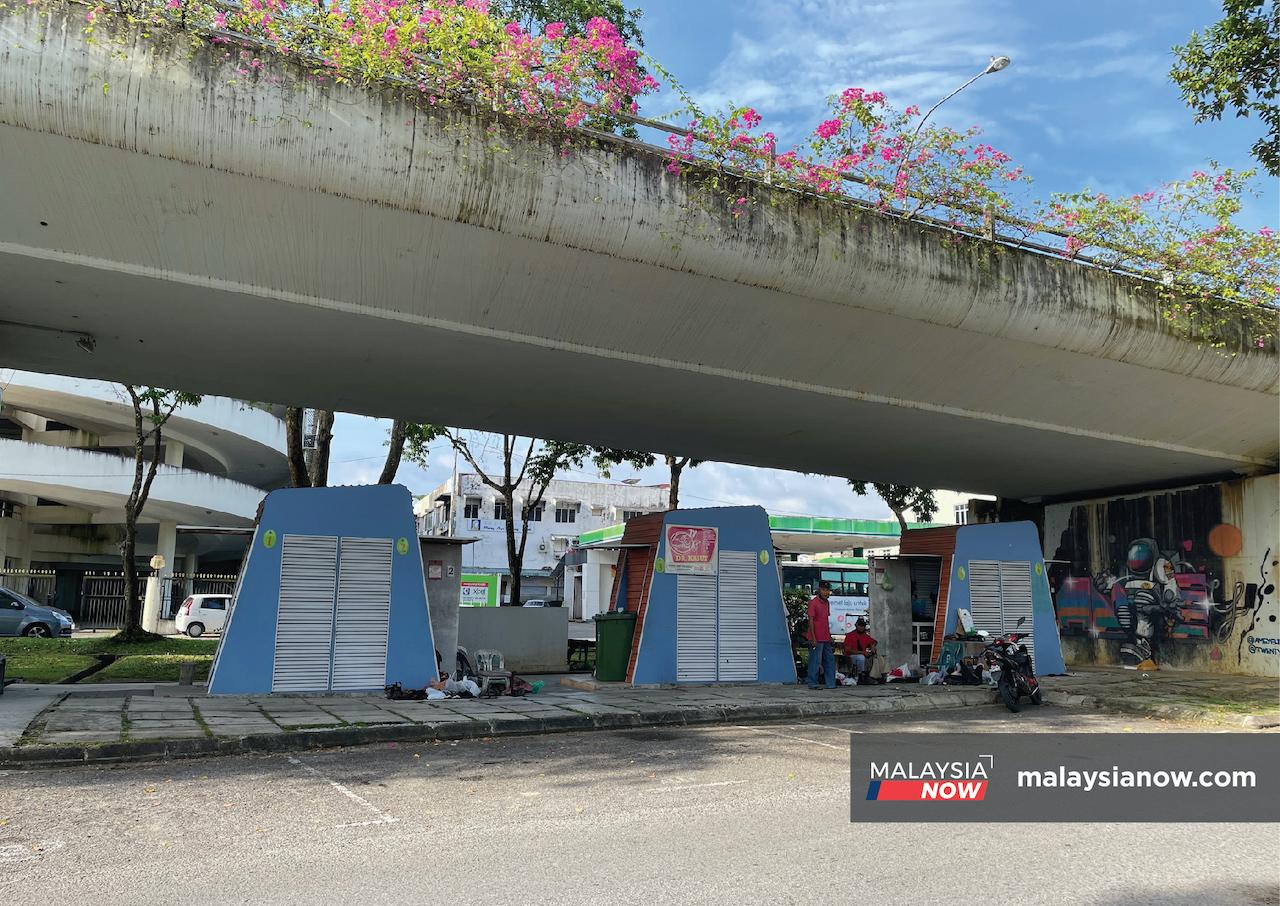Cobbling a living together during the Covid-19 pandemic
Small-time shoe repair businesses are feeling the impact of the pandemic and lockdowns while those in the food supply chain struggle to keep produce fit for the market.
Just In
Each morning, Indra Bujang pushes up the shutters of his small shop under the Satok flyover in Sarawak’s capital city Kuching and gets ready for work.
As vehicles roll their way over the road above, he and five other cobblers lay out their tools and prepare for another day of mending shoes for customers.
Sitting on chairs or stools outside their tiny shops, they set to work, with the shoes that are already repaired waiting in neat rows to be collected by their owners.
This has been their routine for nearly 20 years now.
In addition to mending, they also polish the leather shoes of office workers who come for a quick shoeshine at lunch.
On normal days, they work through the day and sometimes into the night. But with Covid-19 on the loose, customers have been few and far in between.

“Usually on weekends I am here until 9pm because of the food truck night market,” Indra told MalaysiaNow.
“But now, I only stay here until 4pm.”
When the pandemic first hit the country early last year, Indra’s business was among the many forced to shutter due to the movement control order.
Eventually restrictions were lifted and he was allowed to reopen but the once-plentiful stream of customers had slowed to a trickle.
He and his fellow cobblers have been struggling to get by ever since.
Speaking to MalaysiaNow, he said in all his years sandwiched in his tiny shop under the flyover, he had rarely seen the area without a crowd.
Now, even with the gradual easing of Covid-19 restrictions, the streets remain mostly deserted.
The workers who used to drop by for a polish during their lunch break now work from home, and with the many lockdowns enforced since March last year, few have had need for repairs.

“Sometimes someone will pop in, ask a question, and then leave,” Indra said.
“We have suffered a lot because of the pandemic.”
People are simply not going out as much as before, he said, adding that most are afraid to venture from their homes.
“On weekends, I used to have 20 to 30 customers,” he said. “Last Saturday, I had only four the whole day.”
Things are not much better for his friend Pubalan Selladuri, who delivers imported crops for food traders in Lundu and Sematan.

Sarawak’s strict quarantine measures mean that the quality of goods is affected, which in turn impacts the market price.
“The pandemic has substantially affected the distribution of imported food, perishable products such as fruits and vegetables,” Pubalan said.
For example, imported onions from China are usually shipped in bulk. The tight rules on health screening mean that crews are placed under a two-week quarantine upon their arrival.
“They are not allowed to unload the cargo until the quarantine period ends,” Pubalan added.
“So the port will face congestion issues, particularly in cargo-handling work. This delays the unloading of food products which makes them less fresh.”
Refrigerated storage space is also problematic due to the shortage of workers and disruptions in clearing cargo, all of which affect the quality of fresh produce bound for the marketplace.
“The extended delays cause perishables to spoil and increase food waste,” Pubalan said.
Subscribe to our newsletter
To be updated with all the latest news and analyses daily.
